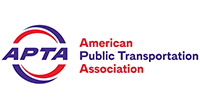
The Takeaway
In 2019 Miami-Dade Department of Transportation and Public Works (DTPW) began working with Velocia, a startup, to incentivize specific travel behaviors. Residents could earn credit—called “VELOs”—for actions such as riding the train to the airport, boarding a bus outside of peak times, or taking a bikeshare trip. VELOs could then be redeemed for rewards including ride hail, carshare, and bikeshare.
In 2019 and 2020 DTPW provided $300,000 for a number of “campaigns” promoting specific behaviors related to local transportation. As of December 2020, over 12,000 people have downloaded the Velocia app in the Miami area, and over 2,800 have linked it to their Miami-Dade Transit fare payment account. Although Miami-Dade Transit ceased collecting fares during the COVID-19 pandemic, initial pilots showed a strong behavioral response to incentives. The partnership with Velocia has supported numerous DTPW goals, including attracting new riders, promoting multimodal travel, and minimizing crowding during the pandemic.
The Setting
The Miami-Dade Department of Transportation and Public Works (DTPW) is the public transportation provider for the Miami region, operating buses, paratransit, the fully automated people mover, and a heavy rail line. Around 400,000 passengers rode Miami-Dade Transit daily in 2019. An ongoing goal of the department has been to encourage trips on transit as well as complimentary modes such as walking and bikeshare (the cities of Miami and Miami Beach manage CitiBike, the local bikeshare system). In 2019 DTPW introduced an account-based fare payment system, which will make it possible to link an individual’s transit account to those on platforms like bikeshare, carshare, et cetera.
In 2017 a non-profit organization called the Fastrack Institute sponsored the Miami-Dade County Fastrack Mobility Challenge, a competition searching for solutions to Miami’s worsening traffic congestion. Velocia, a Canadian startup that uses rewards to alter travel behavior, ultimately won the Fastrack Challenge. Having secured venture capital funding, Velocia proposed launching its app in Miami—its first deployment—and invited groups including DTPW to be partners.
At the time DTPW already had two rewards programs: Cubic Interactive, which provides transit credits to users of Miami-Dade Transit’s mobile app in exchange for watching advertisements, and EASY Perks, which offers transit riders discounts at local retailers. Still, MDT agreed to work with Velocia, believing that a multimodal, behavior-based rewards program could provide a new, flexible tool to pursue the agency’s mobility goals.
The Project
In September 2019 Velocia launched in the Miami-Dade area. Those who downloaded the app would earn VELOs worth $0.01 each when they took specific actions related to transportation, with information collected automatically from their phones via GPS or payment apps. Accumulated VELOs could be redeemed for mobility services including bikeshare, Lyft credits, or Getaround carshare trips.
VELOs would be earned only during a specific “campaign” taking place over a limited period of time. In June 2019 DTPW entered into a $150,000 agreement with Velocia to incentivize specific transit behaviors. Riders could earn 1,000 VELOs for downloading the Velocia app and connecting it to their fare card (called an EASY Card), 40 VELOs for bus or rail trips, and 250 VELOs for taking transit to or from the airport. Users could also earn 300-500 VELOs for walking at least 5 miles during a given week. The $150,000 budget for these campaigns was exhausted by spring 2020.
During the 2020 pandemic DTPW entered into an additional $150,000, six-month contract with Velocia to minimize transit crowding by incentivizing bikeshare as well as off-peak trips. The goal of this campaign was to change at least 7,000 riders’ behavior on a daily basis (roughly 8% of total riders). App users could also earn VELOs by reporting mask compliance within buses or trains. Beyond Miami-Dade Transit, various transportation stakeholders in the Miami-Dade area financed Velocia campaigns included Bolt, Getaround, and the Poseidon Ferry.
Outcomes
As of December 2020, over 12,000 people have downloaded the Velocia app since it became available. Of those, 2,843 have linked their Velocia app to their transit pass (note that Miami-Dade Transit ceased collecting fares in the spring due to the pandemic, which temporarily negated the need to link Velocia to a fare card).
Prior to the cessation of fare collection, results of the Velocia app had been promising. Ridership on bus and rail service rose 30% among riders who had linked to the Velocia app, and 20% of riders to and from the airport registered with Velocia. During the pandemic 29% of participating bus riders shifted to an off-peak time when they were offered 450 VELOs for doing so. As of December, 2020 DTPW has not yet reached its goal of using VELOs to nudge 7,000 riders toward off-peak trips or bikeshare.
Lessons Learned
Carlos Cruz-Casas, DTPW Assistant Director, encourages other transit agencies to consider partnering with a flexible, behavior-based rewards program. “We really see ourselves as a mobility agency, managing the demand in the public right-of-way in time, space and mode. The ability to incentivize different kinds of trip behaviors to match our goals is really valuable to us. Any agency leaders who have similarly broad goals should consider doing the same.”
Looking to the future, Cruz-Casas thinks that the VELO program could be used to encourage private biking in addition to bikeshare, and it could play a role enticing riders to return to transit after the pandemic ends. He also believes it is possible that the program could be combined with Miami-Dade Transit’s own rewards program for users of its mobile ticketing app.
Documents Available:
For Further Information Please Contact: Art Guzzetti, APTA Vice President – Policy and Mobility at aguzzetti@apta.com




